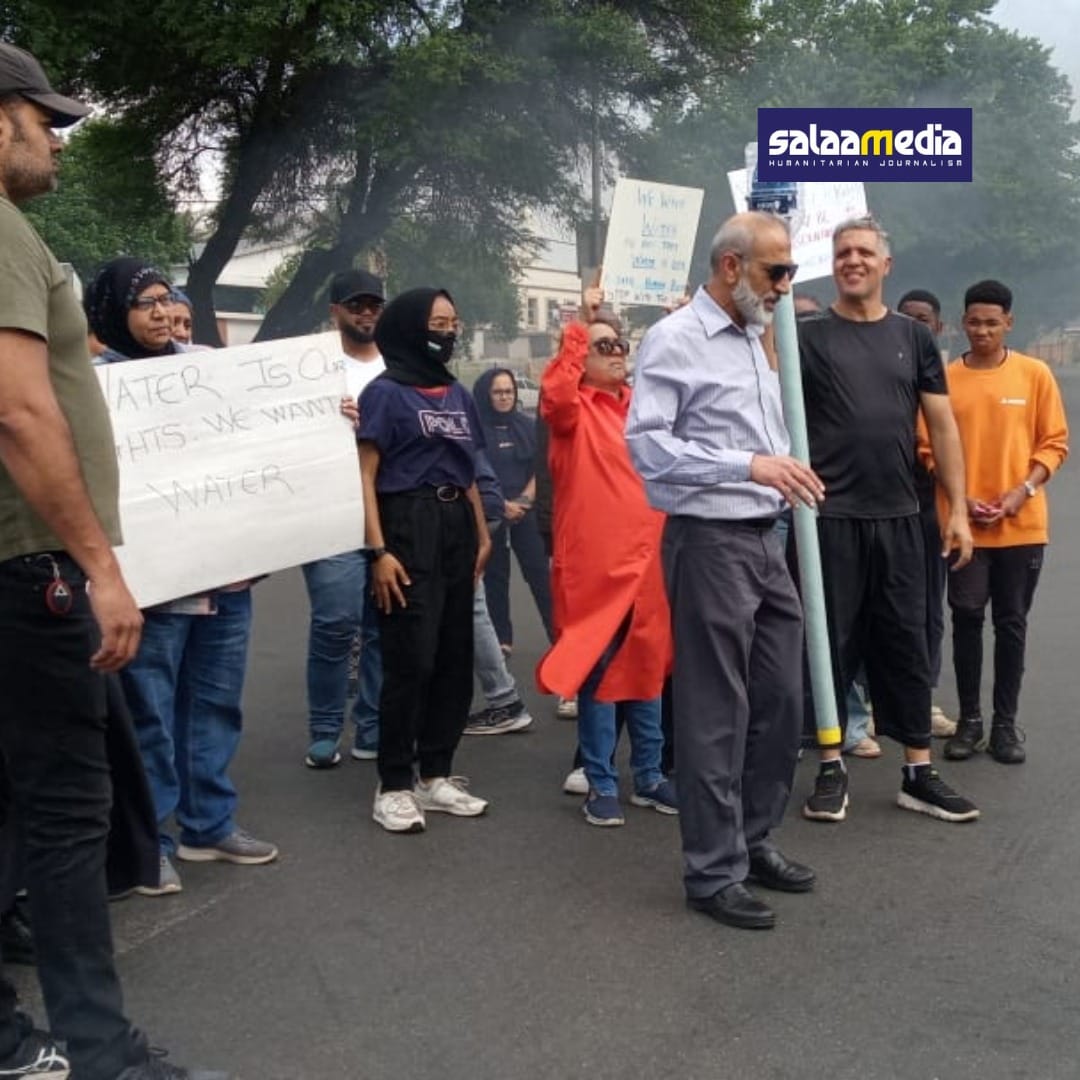Residents of Robertsham and surrounding areas protesting the water shortage Photo Facebook/ Salaamedia
Johannesburg – “We have daily lives. Our livelihood depends on water. Our cleanliness, mental state have all been harmed. Can somebody please do something? We are begging! We are literally begging. Help us! We have nobody that is listening to us. Somebody please help this community of Robertsham.”
These impassioned words were voiced by Zaibonisa Ebrahim and other Robertsham residents who protested on Xavier Road, driven to frustration by weeks of water scarcity.
Exasperated by the “copy and paste” replies from counsellors and authorities, residents decided to take to the streets on Monday, considering it their final desperate measure in seeking assistance. This comes after certain households have endured over 50 days without water.
Despite residents in Robertsham and neighbouring areas expressing their frustration, the water crisis appears poised to persist in the foreseeable future. Dr. Ferrial Adam, Executive Manager at WaterCAN, explained this situation stems from years of neglect and decaying infrastructure. We have reached a critical juncture, and Adam commended the communities for vocalising their concerns, emphasising the necessity of their collective voice on this pressing issue.
“If we don’t raise our anger, this is going to get worse and we don’t want to be where we are with electricity. We need to push back on the water. We need to demand accountability and demand better answers because on any day Joburg Water will tell you one thing and Rand Water will tell you another thing. The city mayor is missing.”
Water shedding and shifting: A temporary fix?
To address the crisis, authorities have introduced new concepts like water shedding and water shifting. Water shedding involves diverting water from reservoirs with ample supply to areas facing shortages, akin to plugging leaks in a leaking bucket. These temporary fixes have prolonged for far too long. Without swift infrastructure improvements, water shedding may become as commonplace in our lives as loadshedding is now. What was once a short term solution with loadshedding has now become an enduring reality for South Africans.
The authorities’ lack of transparency and honesty has deepened public anger and frustration. Robertsham resident Mohammed Allie pointed out that this is one of the key reasons behind the protests.
“We had a meeting with the mayor and he promised to bring a team of people to meet up tomorrow, which is Tuesday. He said he will be bringing counsellors, himself and some of the specialists like engineers and some of the residents to do a site visit to see where the problems are. He promised to do that but we are unsure if that is going to happen because we haven’t had a follow up as yet.
SMread: ‘Double standards!’ Palestinian ambassador Zomlot lambasts West
What is causing the crisis and solving it
The water crisis can be attributed to a multitude of factors, including failing infrastructure, rampant leaks, and the absence of skilled personnel to oversee water treatment plants. WaterCAN, in an effort to get clarification on the issues, sent letters to Joburg Water and Rand Water demanding site visits.
“We have been told that the Hursthill Reservoir, Hursthill 2, has a leak at the 1.2m mark. That means that they cannot fill it up. It means it empties faster. That’s why many people can’t get a lot of water but it’s not only the Hursthill Reservoir. There are other reservoirs who are having similar issues but we’re not being told and that’s the bottom line. The transparency, the lack of honesty and that’s creating and feeding the anger on the ground.”
Although legal action is a possibility, Adam stressed it’s both time-consuming and expensive. It stands as a final option. Over the weekend, The Ahmed Kathrada Foundation and The Organisation Undoing Tax Abuse (OUTA) convened to discuss several problems afflicting Johannesburg, including the water crisis. The aim is to unite communities and organisations under a single umbrella, forming specialised teams to address various issues. The emphasis lies on building a robust collective voice that commands attention and cannot be dismissed.
“What we’re doing is, as civil society, taking back power. If the municipalities can’t tell us things, if the utilities can’t tell us things then we’re going to create this body that’s going to demand answers and make sure that things happen on the ground because water is too important to allow it to get any worse than it is.”
